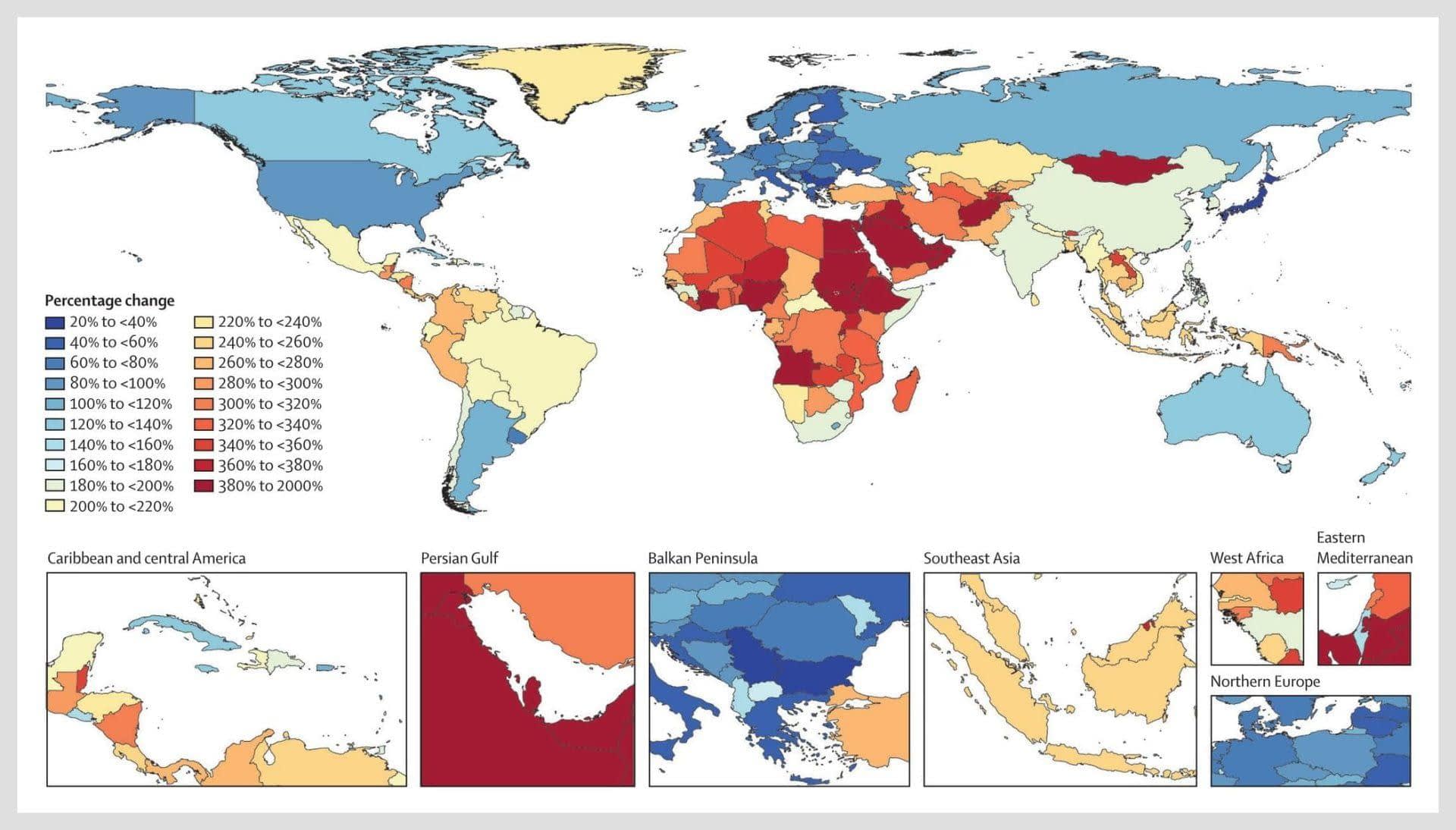Dementia Rates Set to Triple by 2050, Latest Research Indicates
Dementia cases are predicted to triple by 2050, with researchers estimating over 153 million global cases by then, up from 57 million in 2019. Ageing populations and unhealthy lifestyle choices are contributing to the rise, but preventative measures, such as healthier diets and increased education, could help reduce the prevalence of dementia in the future.
Dementia cases are expected to triple by 2050, according to a newly-published report in The Lancet medical journal.
Researchers predict that more than 153 million people globally will be afflicted with the medical condition by the mid-point of the 21st century, up from 57 million people in 2019.
We need to reduce exposure to the leading risk factors in each country.
Ageing and growing populations are largely attributed to the predicted rise in cases. However, the researchers added that unhealthy diets and lifestyle choices are also contributing to the acceleration.
See Also:Olive Oil Health Benefits“We predicted that population ageing and population growth will drive enormous increases in the number of individuals affected by dementia both regionally and globally,” the researchers wrote in the study, which investigated the prevalence of dementia in 195 countries.
“The consequences of these increases are compounded by the high societal and monetary costs of the disease,” they added.
Dementia is currently the seventh leading cause of death globally and a major cause of disability for people aged 70 years and older.
High-income counties in East Asia and Western Europe, along with Australia, Argentina, Canada, Russia and the United States are predicted to see the lowest increase in dementia, while its prevalence is expected to increase rapidly – by as much as 2,000 percent in some cases – in parts of Africa, the Middle East and Central Asia.

The Lancet
While there is no cure for dementia, a 2020 update to the Lancet Commission on dementia prevention, intervention and care estimated that 40 percent of dementia prevalence may be preventable.
The researchers also identified 12 modifiable risk factors for dementia. Individuals with cardiovascular disease, diabetes and head injuries, along with those who are obese and smoke are at higher risk of suffering from dementia.
Individuals with lower levels of education were also observed to be at higher risk of dementia.
The researchers warned that the results of their study indicate a substantially increased strain on global health systems, especially those in developing and underdeveloped countries.
“However, interventions that alter the expected trends in risk factor prevalence might reduce the expected future prevalence of dementia,” the researchers wrote.
Emma Nichols, the lead author of the study from the University of Washington’s Institute for Health Metrics and Evaluation, told BBC News that preventing and controlling risk factors now “would pay remarkable dividends.”
“To have the greatest impact, we need to reduce exposure to the leading risk factors in each country,” she said. “For most, this means scaling up locally appropriate, low-cost programs that support healthier diets, more exercise, quitting smoking and better access to education.”
Nichols told Olive Oil Times that the impacts of extra virgin olive oil consumption on reducing the risk of Alzheimer’s disease and dementia had not been specifically studied by the researchers.
However, a range of studies have demonstrated that following the Mediterranean diet and consuming extra virgin olive oil is associated with improved memory and cognition in the elderly.
Separate studies have found that the polyphenols in extra virgin olive oil – specifically oleocanthal – help to prevent the buildup of harmful plaque in the brain, which kills neurons and is associated with the onset of dementia.
Oleocanthal has also been shown to reduce inflammation to certain receptors in the brain that are linked with the development of Alzheimer’s and other neurodegenerative diseases.







